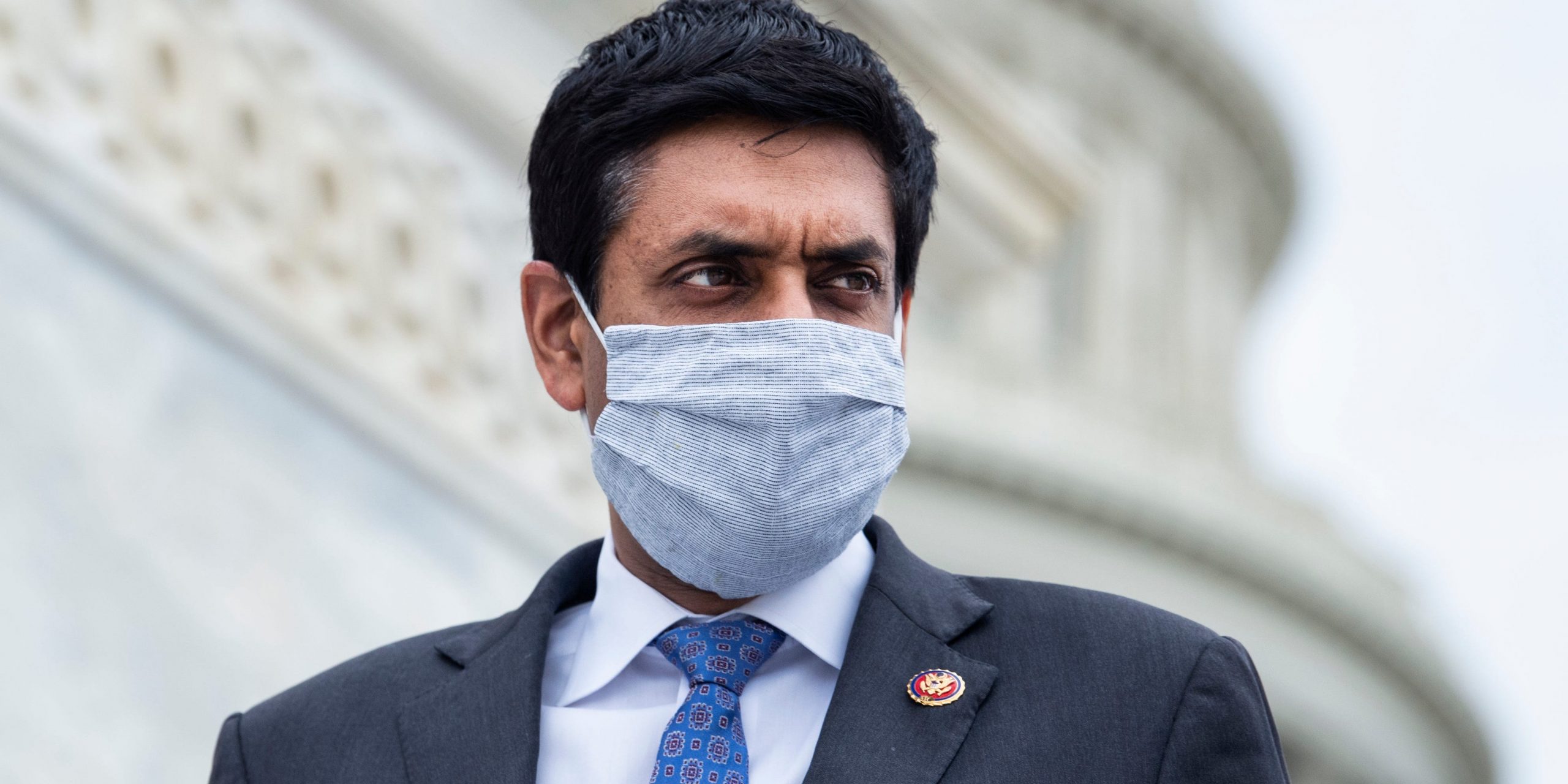
Tom Williams/CQ-Roll Call via Getty Images
- California Rep. Ro Khanna introduced a bill to require more aggressive tax auditing of the ultra-rich.
- It would provide $100 billion for the IRS to pursue audits that could bring in another $1.2 trillion in revenue.
- Khanna’s bill is a less controversial alternative to Sen. Elizabeth Warren’s wealth tax.
- Visit the Business section of Insider for more stories.
Wealth taxes have been the subject of much conversation since the coronavirus pandemic began in 2020, but what if you could raise more money from the wealthy just by enforcing existing taxes?
That’s an idea tucked into a bill sponsored by Rep. Ro Khanna of California following the chaos surrounding GameStop and the stock market. A member of the Progressive Caucus with a track record of work on social and economic issues, his newest bill is one to add to the list.
Khanna’s Stop Corporations and Higher Earners from Avoiding Taxes and Enforce Rules Strictly (CHEATERS) Act would require the IRS to annually audit 95% of companies with at least $20 billion in assets, along with 50% of individuals with an income of at least $10 million. That would be a big change from 2018, when only 0.03% of returns from individuals making over $10 million were examined, according to IRS data.
With the more aggressive methods proposed under the bill, the government could raise an additional $1.2 trillion in tax revenue over the next decade, according to the bill text. It would require an investment of $100 billion in the IRS, but it wouldn’t raise any new taxes at all.
“Wall Street has been able to act like high rolling gamblers with almost zero consequences for far too long,” Khanna said in a statement. “Right now, the wealthiest 1% are responsible for roughly 70% of the ’tax gap’ – the difference between taxes owed and taxes paid. It’s time every American pay their fair share.”
Other elements of the bill include:
- Using $10 billion of the allocated funding to upgrade IRS technology;
- Requiring additional reporting for individuals with incomes above $400,000 that include money from sources not previously disclosed to the IRS;
- Having the IRS regularly report to Congress on its auditing progress;
- And increasing penalties on millionaires who put false information on their tax returns.
Khanna's bill could prove less controversial than proposals from other Democratic lawmakers to increase tax revenue from the ultrawealthy, such as Sen. Elizabeth Warren's (D-Mass.) two-cent wealth tax, which proposes a 2% tax on every dollar for families with a net worth of more than $50 million.
—Elizabeth Warren (@ewarren) February 3, 2021
The UK's Wealth Tax Commission called for a wealth tax in December, proposing a 1% tax for five years on individuals worth over £500,000, while Argentina voted to tax the top 0.8% of its population - just around 12,000 people. The government hopes to bring in $3.3 billion with the measure. These measures are one-off taxes, however, unlike Warren's proposal.
Khanna's bill has backing from a 2020 study by University of Pennsylvania professor Natasha Sarin, former Treasury Secretary Larry Summers, and former IRS Commissioner Charles Rossotti, which said that the government misses out on billions of dollars in tax revenue from taxes that are owed but not paid.
"The failure of a minority of taxpayers to pay what they owe imposes significant burdens on those who are fully compliant," the study said.
